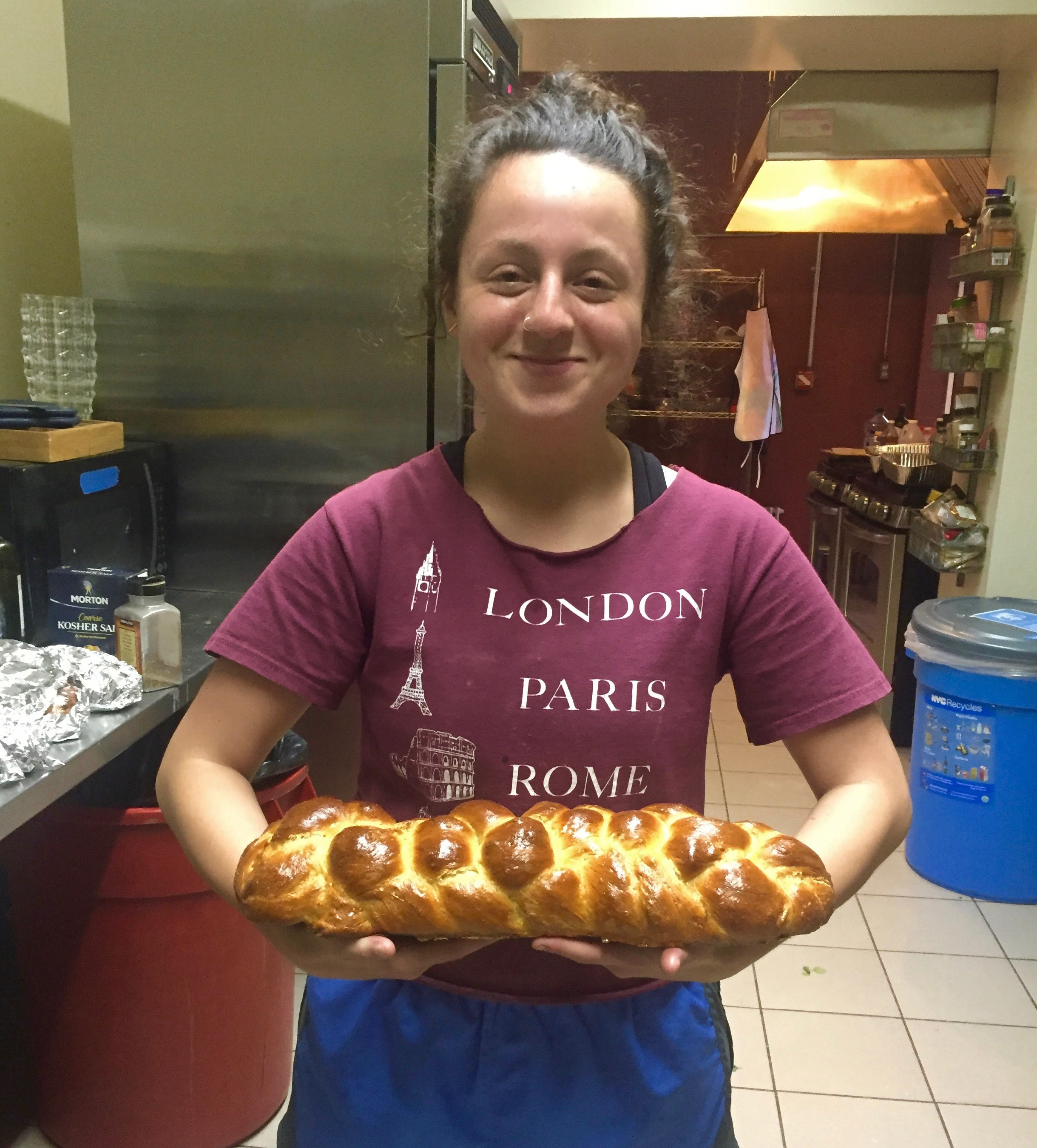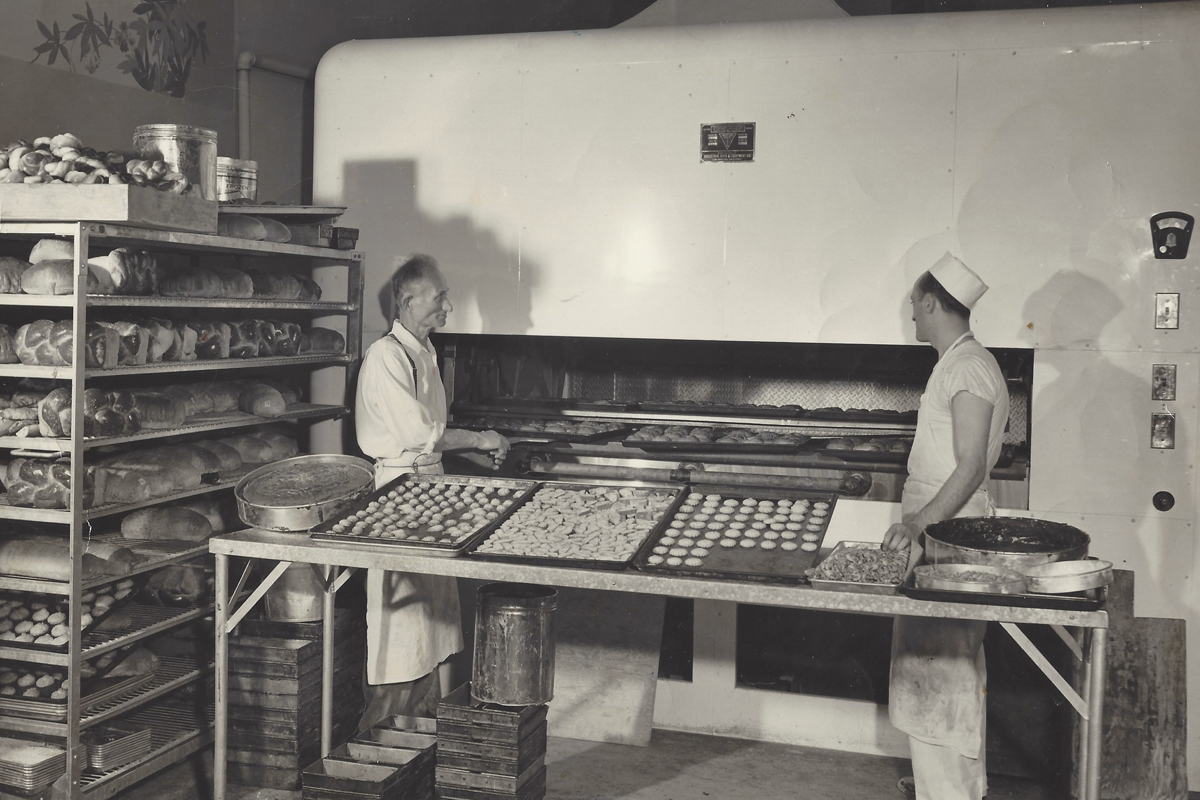Like many young Jewish women, I have a proclivity for one nostalgic, fluffy, and delicious baked good: challah. Given my propensity to eat an entire loaf in one sitting, I’ve recently been leaning into my baking potential, with the help of a family recipe. But it’s not my mother’s recipe, nor my grandmother’s or great-grandmother’s — it’s my grandfather’s.
I have always known my grandfather Jacques (although everybody calls him “Jack”) as an excellent challah baker.
Jack is somewhat of a local celebrity. His reputation as a formerly prominent San Francisco lawyer and self-proclaimed active member of two local synagogues precedes him within our Bay Area Jewish community. He is often approached by old acquaintances at restaurants or the opera, and always finds someone to continue a conversation with at the JCC.
But for me, he has always been my grandfather, the challah baker. As a child, the hour-and-a-half drive to his home came with the promise of warm, golden-brown loaves of six-strand braided bread — and one for the road back home, if I was lucky.
Jack began baking challah when I was a baby, around the time that his wife, my mother’s mother, died. During their marriage they raised a Jewish family, but one without specific religious rituals for Shabbat. Obviously I did not know my grandmother well — although pictures and anecdotes tell me that we were quite close — and I never knew my grandfather before he had a regular Shabbat practice, complete with a challah recipe that has people clamoring for a Friday night dinner invitation.
How did he become such a prolific challah baker? After my grandmother’s death, Jack was invited to many Shabbat dinners. At one of them he tried his friend Fred’s challah, and thus his notable foray into challah baking began.
In retrospect, his challah baking success is not a coincidence. Jack grew up around food and baking. His own grandfather was a baker at United Baking Company, the largest kosher bakery in Pittsburgh, and brought home a fresh bag of baked goods every morning.
The home I was raised in, on the other hand, had very few homemade delicacies. It is a family joke that during my freshman year of college, many of my friends missed their mothers’ home cooked meals, whereas I missed dining hall food when I was home.
My mother, from whom I have inherited mannerisms, values, and my child-birthing hips, is not a chef. She can prepare a great salad and bake my grandfather’s challah recipe, but that’s about it. Although she fits into some of the more flattering elements of the Yiddishe Mama stereotype — the precursor to the contemporary image of the neurotic and overbearing “Jewish mother” — she is not one for “domestic miracles” when it comes to food.
There is a decidedly long connection between women and food in Jewish history. Jewish women were often the cooks and sole breadwinners of their families, who fought fiercely to nourish their communities from home. For instance, the famous 1902 kosher meat boycott — lead by Jewish women on the Lower East Side over a six cent raise in the price per-pound of kosher meat — sowed the seeds for the contemporary labor movement in the United States.
However, this history has been distorted into a stereotype of a loving Jewish mother in the kitchen, which both overlooks the powerful history of Jewish women and food and limits homemaking on the basis of gender.
Case in point: My own concept of managing and creating a Jewish home is largely influenced by my grandfather. I’m forever thinking of him in a button down shirt and an apron, measuring out flour in the well-lit kitchen of his home.
As a 20-something, living between different homes and Jewish communities, I am still developing my method of Jewish homemaking and my identity as a Jewish woman. For me, sharing in some of the elements of Shabbat is what makes me feel most at home. And it’s my grandfather’s recipe I often use as a selling point when looking for a Shabbat dinner invitation: Do you have room for one more? I can bring the challah!

Before we were officially dating, my now-boyfriend was describing me to his rabbi from yeshiva after Shabbat evening services. “She’s Jewish,” my boyfriend said, “and makes wonderful challah — among other things.”
Later, I remember being pleased with both the idea that I was introduced to a rabbi in synagogue while actually still at home in sweatpants, and that my challah made the description; like my grandfather, I am happy to be known as a Jew who bakes challah.
I only wish I’d been at the synagogue to say to the rabbi: “Yes, it is pretty good challah, and it’s my grandfather’s recipe!”



